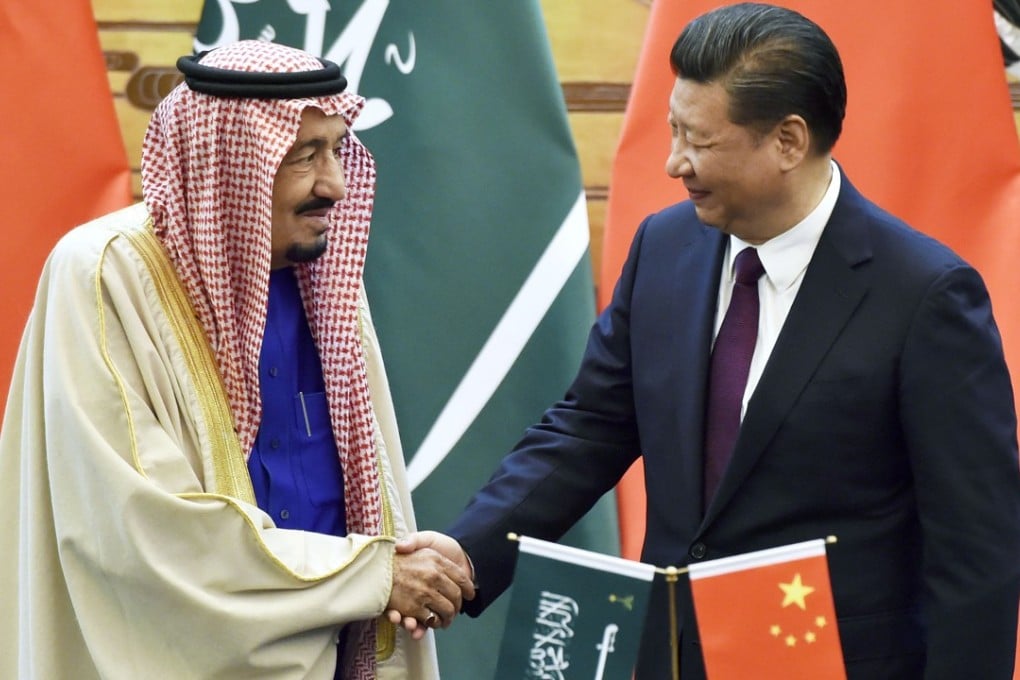Advertisement
China rewrites the rules on how to rise in influence in the Middle East
Daniel Wagner writes that Beijing, by increasing its oil consumption and maintaining an open posture towards competing actors in the region while letting the US handle the security burden, has quietly made itself into a massive player in the region
Reading Time:4 minutes
Why you can trust SCMP

Russia’s muscle-flexing in Syria, where it was central to the defeat of Islamic State, and elsewhere in the Middle East, has prompted regional observers to think of Moscow as one of the pre-eminent powers in the region. That characterisation is well-deserved, for Vladimir Putin gambled big by doubling down against the IS in Syria, presiding over a truly significant (and costly) win. As Russia continues its well-worn path towards increasing power and influence in the region, nipping silently at its heels is China, which understands well the potential benefits of strengthening its own relationships and influence in the Gulf region and beyond.
Advertisement
China’s relationship with the Middle East dates back to the Rashidun Caliphate, following the death of the Prophet Mohammed in 632, and China has had diplomatic and trade relations with the region in one form or another since that time. Jiang Zemin became the first Chinese leader to visit the Arab League in 1996, and the China-Arab States Cooperation Forum was established in 2004.
Chinese leaders have regularly visited the region’s capitals for many years. President Xi Jinping made his first visit to the Middle East in 2016, setting the stage for subsequent tours through the region. China clearly sees the region’s shifting political sands as an opportunity to enhance its economic and political role, particularly as America’s power and influence continues to decline.
Xi’s 2016 visit to Tehran came just days after global sanctions were officially lifted (with Beijing wasting no time in attempting to establish a foothold with Iran), which resulted in some US$600 billion worth of contracts for Chinese firms over a decade. China had already become Iran’s No 1 export partner. By visiting both Iran and Saudi Arabia in the same trip, Xi was attempting to play off of both countries’ proxy regional conflicts for its own benefit, seeking to keep both sides in its camp.
If Xi Jinping wants China to succeed the US as a world superpower, he must choose change
China is clearly the future growth market for Saudi petroleum. Saudi oil exports to China exceeded those to the United States for the first time in 2009, and the kingdom’s exports to five Asian countries (China, Japan, South Korea, India and Singapore) amount to more than three times that of Europe and North America combined. By 2030, the Chinese National Petroleum Corp estimates that Chinese demand for oil will reach 13.8 million barrels per day, while US oil imports are expected to continue to dwindle in the era of fracking. In shifting its oil export focus, Saudi Arabia is joining the world’s major Muslim powers (including Nigeria, Iran, Malaysia, Pakistan, Turkey and others) that have deepened their economic ties with China over the past decade.

Advertisement